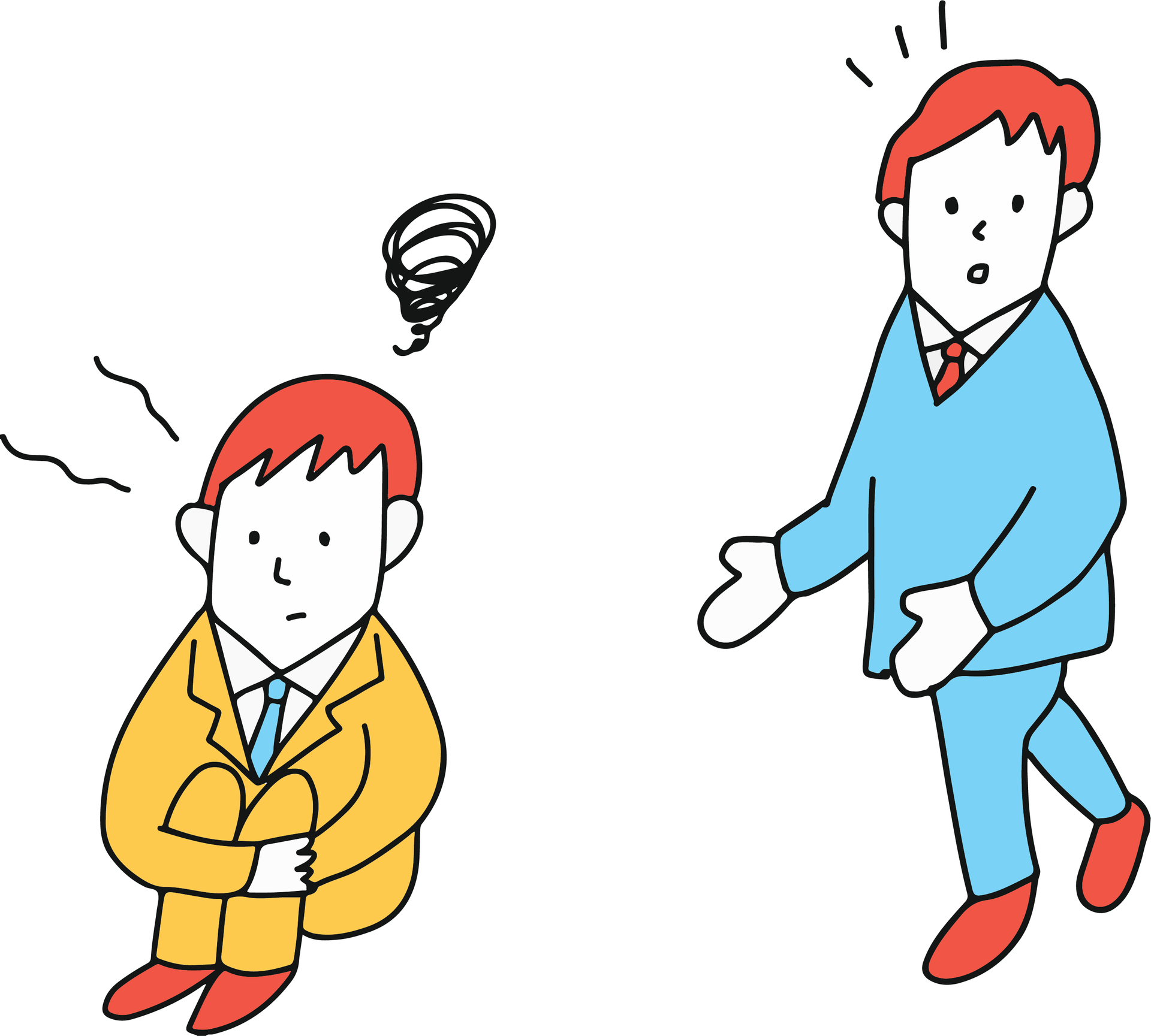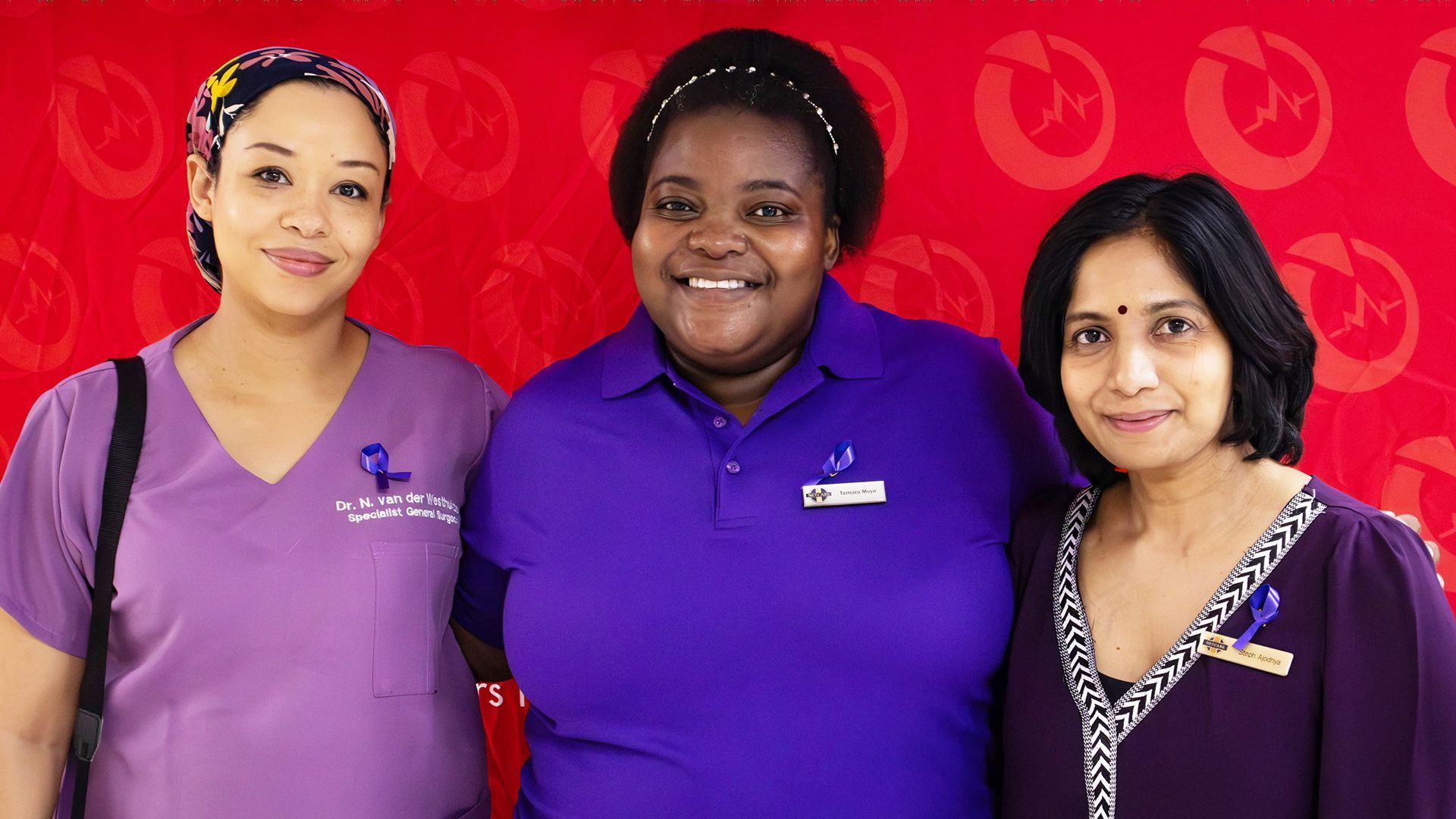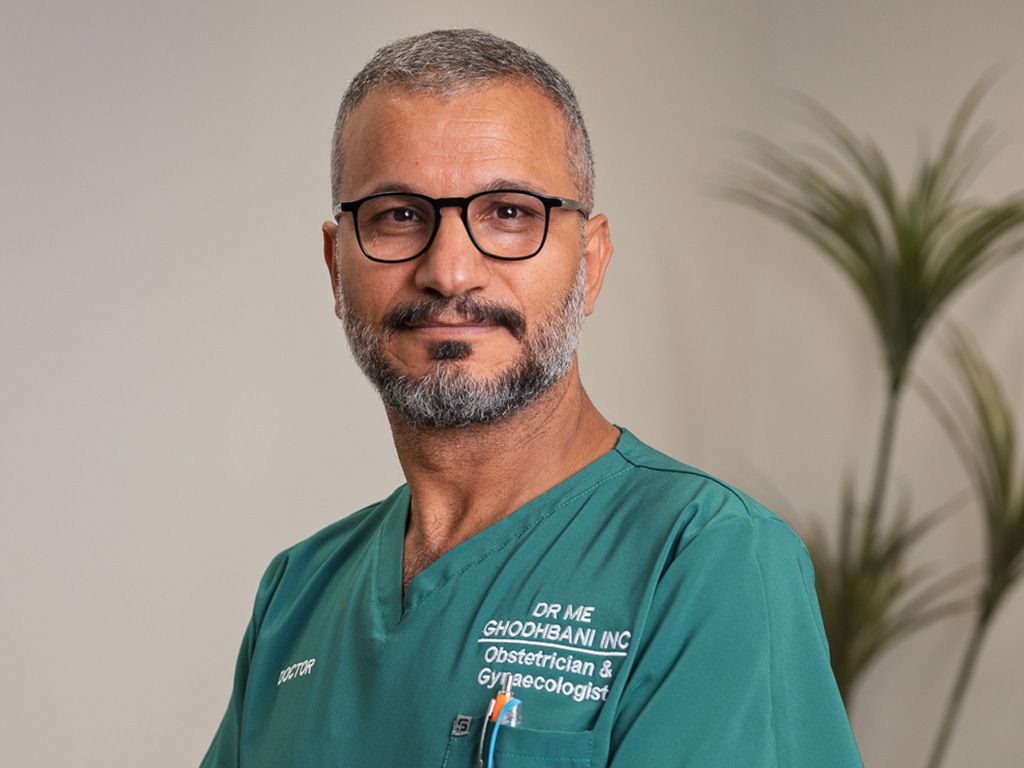A nurse’s journey: Learning to live with epilepsy
(Left to right:) General surgeon Dr Nicole van der Westhuizen is pictured at the ER Consulting Inc epilepsy awareness drive at Netcare Olivedale Hospital recently, with Registered Nurse (RN) Tamara Moyo and emergency department unit manager RN Stephanie Ajodhya.
ER Consulting Inc and Netcare Olivedale Hospital highlight epilepsy awareness
A cancer survivor and nurse who was diagnosed with epilepsy in adulthood says knowledge is power when it comes to this relatively common neurological condition.
ER Consulting Inc, which manages the emergency department at Netcare Olivedale Hospital, recently shone the spotlight on epilepsy awareness to coincide with Epilepsy Week, from 12 to 18 February 2024.
Registered nurse Tamara Moyo shares her personal story of learning to live with epilepsy after being diagnosed in 2022 to encourage and inform others about this neurological condition, which affects one in every 100 people in South Africa, representing approximately half a million South Africans based on a total estimated population of 52 million.
“I survived cancer in 2021, and in August 2022, I moved to Johannesburg to start my new job at Netcare Olivedale Hospital. On 19 November, I had my first seizure,” Nurse Moyo recalls.
“It came as a shock, as I had never experienced anything like that before. I woke up so confused and had a severe headache, and I had bitten my tongue and was bleeding,” she says.
“The scariest part was not remembering what had happened before that, and I thank God I had the support of my family and colleagues. This led me to be diagnosed as epileptic and beginning treatment.”
Nurse Moyo says although it is difficult to adjust to life with epilepsy, she has empowered herself with knowledge about her condition. “It really helps to do research because learning to understand epilepsy better helps me to improve my lifestyle and identify what triggers my seizures to manage the condition as best possible,” she says.
“I have learnt that two of my main triggers are excessive noise and not getting enough sleep, and I’ve also learnt to recognise how I feel just before a seizure. Sometimes, this has prevented the seizure or at least allowed me to get to a safe place before it starts.”
Other common triggers for epileptic seizures include flashing lights, missed meals, hormonal changes, or stress and anxiety.
“I’m telling my story in the hope that someone will find encouragement in learning to live with their epilepsy because it is not an easy road. My advice is to keep taking your medication as prescribed, get to know what triggers your epileptic seizure and keep going for regular checks with your neurologist or treating doctor because your treatment needs may change over time.”

What to do if someone is having a seizure
Would you know what to do if you found someone having a grand mal seizure? Be prepared with this list of Dos and Don’ts.
DO THIS:
- Loosen constrictive clothing around the person’s throat.
- Remove sharp or hard objects, including furniture near the person, that might cause injury.
- Remove spectacles if the person is wearing them.
- Reassure any bystanders who may have gathered and are upset by what they’re witnessing, and ask them to give the person space while keeping a close eye on the person having the seizure.
- Position the person so that they lie on their side in the recovery position, if possible, so that any fluid can drain from their mouth.
- Call an emergency medical services provider, such as Netcare 911 on 082 911 or via the Netcare app, if the person having a seizure is pregnant.
- Call an emergency medical services provider if the seizure lasts longer than three minutes.
WHAT NOT TO DO:
- Do not panic.
- Do not try to put your fingers or any object into the person’s mouth during the seizure.
- Please do not hold the person down or restrain them.
ONCE THE SEIZURE IS OVER:
Check that the person is breathing normally. At this stage, you may need to help clear any obstruction from the person’s mouth with your finger and put the person in the recovery position. This means laying the person on their side, with their mouth angled downwards so that any fluid or vomit will drain out of the mouth instead of blocking the airway.
- Allow the person to rest.
- People are frequently confused or drowsy after a seizure or have a severe headache. Reassure them and stay with them until they are fully alert and recovered.
- Only offer them food or drink once they are fully alert.
- Check the person has not sustained any injuries during the seizure.













